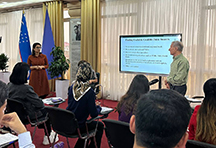
Health reporting workshop
During a two-week visit to Uzbekistan, Knight Center director Eric Freedman lectured at two universities, spoke about how to report on health issues and health research at a workshop for professional journalists and met with leaders of media development and environmental organizations.
The trip was part of a U.S. State Department-funded, capacity-building project that partners the MSU School of Journalism’s Knight Center for Environmental Journalism with the Journalism & Mass Communications University of Uzbekistan in Tashkent, the country’s capital. Three JMCU representatives visited MSU earlier in the fall.
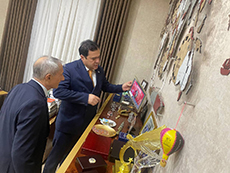
With university Rector Sherzodkhon Kudrathodja
Freedman met with JMCU administrators and instructors, participated in a master’s-level health, science and environmental reporting course and facilitated workshops for faculty, graduate students and working media professionals.
In addition, he lectured to faculty and graduate students at the Tashkent Institute of Irrigation and Agricultural Mechanization Engineers on how scientists can more effectively explain their research to the public. He also visited Akfa University, the country’s first private university.
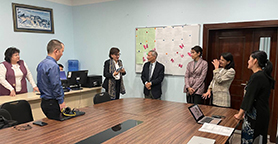
Meeting with doctoral students
His activities included meetings with the NGO Modern Journalism Development Center, the NGO Internews which supports independent media, the State Environmental Committee, the NGO Green Central Asia and Cultural Affairs and Public Affairs officers at the U.S. Embassy in Tashkent, which provided the grant. He gave interviews to several news channels, including the environmental nonprofit Ekolog.uz.

Institute of the Sun research facility
He joined graduate students on a field visit to the Centre of Hydro Meteorological Service, which conducts testing for temperature, precipitation and air and soil pollution quality and monitors climate change. He accompanied several faculty members to tour the Institute of Physics and Technology (Institute of the Sun) and the Sukok Reserve, an undeveloped national park area. The institute was a top-secret research facility during Soviet times, calls itself the “world’s largest solar oven” and now develops new materials for industrial, agricultural and scientific uses.
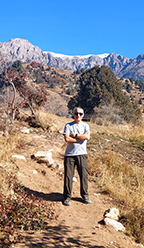
At Sukov Reserve
Freedman’s visit included an “it’s-a-small-world” moment when he and Dilnora Azimova, the project’s JMCU consultant and an MSU alum, attended a “Shubert by Candlelight” piano concert at the State Conservatory. They didn’t know that two other MSU alumni would be at the concert: the internally acclaimed pianist and music producer Sergei Kvitko, who lives in Lansing, and nuclear physicist Alisher Sanetullaev, a university professor in Tashkent. He and Azimova had never met either of them and were unaware of Kvitko’s MSU connection before the concert.
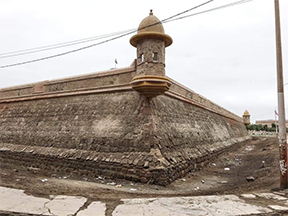 This wonderful monument is the pride of many citizens of the region.
This wonderful monument is the pride of many citizens of the region. 
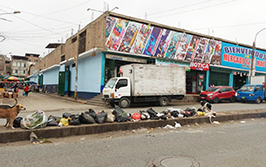





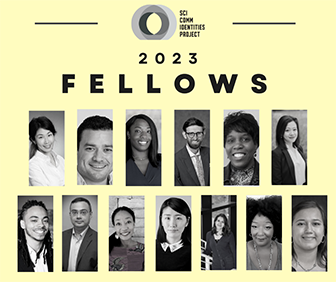 The University of Rhode Island’s
The University of Rhode Island’s